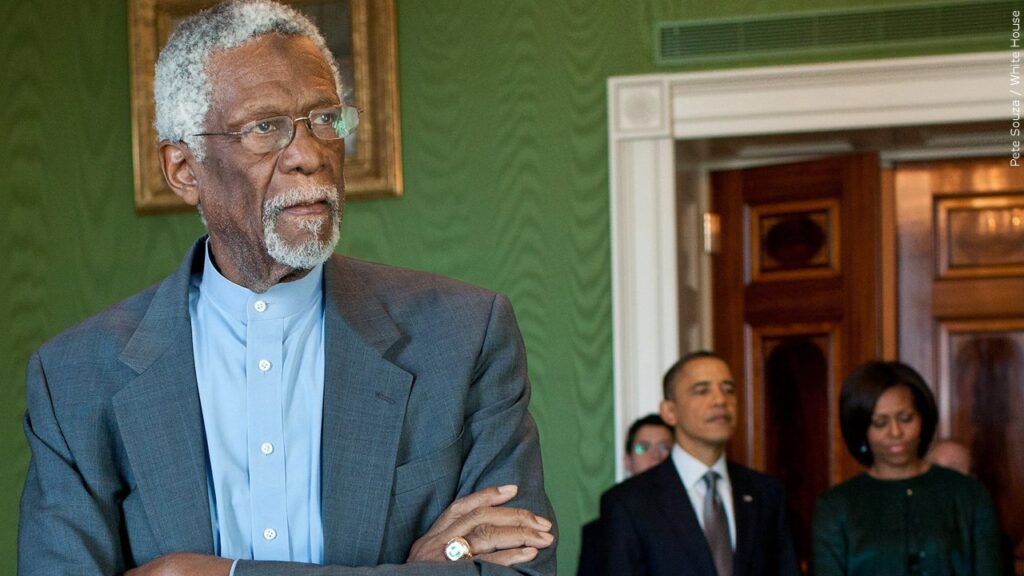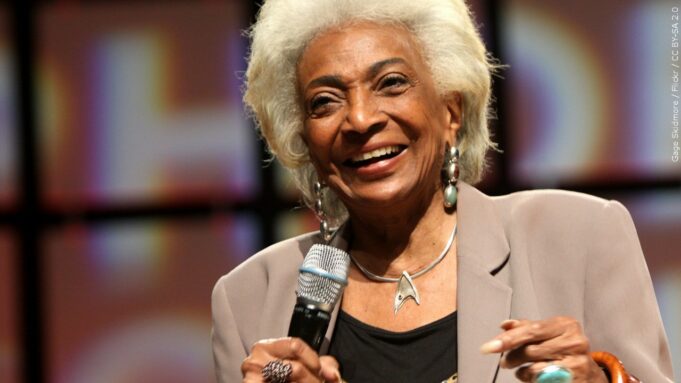The recent passings of actress Mary Alice, actress Nichelle Nichols, and NBA Hall of Famer Bill Russell have left an indelible mark on art, entertainment and culture. From acting to sports, these icons not only impacted Black communities but had tremendous mainstream success and influence in their respective fields. The trio are shining examples to all who face adversity while recognizing God’s gifts.
Mary Alice, an Emmy and Tony award-winning actress who brought a delicate grace to her roles in Hollywood blockbusters (“The Matrix Revolutions”) and television sitcoms, “A Different World” and the hit Broadway play “Fences,” died on July 27 at the age of 85, according to several media outlets.
Ms. Alice, born Mary Alice Smith, appeared in nearly 60 television shows and films before her retirement in 2005. Her work on stage has been recognized with induction into the Theater Hall of Fame while at one point teaching before becoming a full-time actress.

According to Lawrence Ware, a philosophy professor at Oklahoma State University’s Center for Africana Studies, Mary Alice should have been a household name. However, she was not a part of White Hollywood, he says.
“The actress would have been as sought-after for roles as Meryl Streep and as Oscar-nominated Cate Blanchett if she had been White. She might have had a career like Dame Judi Dench, working well into her twilight years in roles that allowed her to showcase her considerable talent. As a Black woman in Hollywood, she became prominent at a time when dark-skinned Black women were marginalized. As a result, she never received the awards she deserved,” he noted in a story for the Huffpost.
Such is the same legacy left by Nichelle Nichols of Star Trek fame. She once told the UPI news service, “If you’ve got to be typecast, at least it’s someone with dignity.” She is best known for her role as Lieutenant Uhura in the original Star Trek series. Ms. Nichols was one of the first Black women to appear in a starring role on television. She was also one of the few Black characters on television at the time who was not a maid, servant, or mammie.
Her character was a groundbreaking figure in terms of race and representation on television. Uhura was smart, confident, and capable and held her own against her White male counterparts. This was a radical departure from how Black women were typically portrayed on TV. During her time on Star Trek, Ms. Nichols helped break down barriers and pave the way for future generations of Black actresses. She is an integral part of television history, and her legacy continues to inspire viewers today.
Having studied classical ballet and Afro-Cuban dance, she made her professional debut at 14 at the College Inn, a high-society Chicago supper club. During a tribute to Katherine Dunham, she impressed Duke Ellington, who was in the audience. Later, she appeared in his traveling show as a dancer and singer.
The daughter of a chemist and a homemaker, Grace Dell Nichols was born Dec. 28, 1932, in Robbins, Ill., and grew up in Chicago.
Ms. Nichols wrote about being on the verge of leaving “Star Trek” towards the end of the first season. She was approached by Dr. Martin Luther King Jr., who told her she couldn’t go because she was a role model for millions of girls and women. For the world to believe in Black equality, Dr. King knew that Black people must be seen in roles of equal status. Moreover, he knew she had the opportunity to challenge racism and break down barriers. Ultimately, Ms. Nichols decided to stay on “Star Trek” and continue to fight for equality.
Bill Russell was one of the greatest basketball players of all time. He was an 11-time NBA champion, a five-time NBA MVP, and a 12-time All-Star. He was also the first Black head coach in the NBA. The Russell family posted a statement on social media confirming Mr. Russell’s death on July 31 at the age of 88.
When he came out of college in 1956, he was already a champion. He led the University of San Francisco to two NCAA championships in 1955 and 1956. He had won a gold medal with the U.S. Olympic team at the Melbourne Games. Despite his impressive credentials, many NBA fans doubted whether Mr. Russell could be successful in the league because, as they said, he only rebounded and blocked shots.
Back then, the NBA was an all-White league, with racism as prevalent as ever. Mr. Russell emerged as a trailblazer in many ways. He was one of the first Black players to be drafted into the NBA, becoming one of the league’s first Black superstars. He was also a superb athlete, with unsurpassed jumping ability and agility. But perhaps most importantly, Mr. Russell was a basketball genius. He had an uncanny ability to anticipate what his opponents would do, and he always seemed to be one step ahead of them on the court. As a result, he completely changed the way the game was played.
Bill Russell was more than just a basketball player. He was a civil rights activist who fought for equality on and off the court. In 1967, he joined Muhammad Ali in speaking out against the draft, risking his career to take a stand. And two years earlier, he marched with Dr. King Jr. in the historic civil rights march in Washington, D.C.

Mr. Russell was a powerful voice for change. His legacy inspires athletes today to use their platform to speak out on social justice issues.
He was born on Feb. 12, 1934, in Monroe, Louisiana. As a child, he moved to the West Coast with his family. He attended high school in Oakland, California, and then the University of San Francisco.
Former West Chester basketball coach and Philadelphia 76er executive Julani Ghana told The Final Call about Mr. Russell. “He was the equivalent of Sidney Portier in sports, given his immense, perhaps unparallel dignity and pride. I mean, there were certain things that Mr. Russell, like Mr. Portier, would not do even if it was financially in his best individual interest,” she said.
“The thought was that he was just a defensive guy; not only did they minimize the African contribution to the game, but they don’t understand or recognize you don’t win 55 straight college games just rebounding and jumping. In essence, his offensive abilities were arguably his most underrated traits,” he noted.
“So, Bill Russell, like Sidney Portier and many African warriors across the spectrum, his analysis requires deep thought. I would say even uncomfortable thought because he’s not a sound bite kind of person to understand him and his impact. And that’s why he struck my heart. So powerful, you know, that people like me wept when he made transition,” Mr. Ghana said
“You know, I am a child of Mr. Bill Russell because I wouldn’t be here without him. I wouldn’t have had the opportunity to experience professional sports. With the way he did it, he’s most underrated. His core was Black dignity, an entirely different mindset, and attitude. Yeah. He was a man who did not back down.”
—Michael Z. Muhammad, Contributing Writer













